Who We Are
Scientific Advisory Board
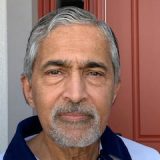
Dr. Suresh Kotagal
Dr. Suresh Kotagal is an Emeritus Professor in the Departments of Neurology at Mayo Clinic in Rochester, Minnesota, USA. He has also served as consultant in the Departments of Neurology, Pediatrics and the Center for Sleep Medicine at Mayo Clinic.
Dr. Suresh Kotagal is an Emeritus Professor in the Departments of Neurology at Mayo Clinic in Rochester, Minnesota, USA. He has also served as consultant in the Departments of Neurology, Pediatrics and the Center for Sleep Medicine at Mayo Clinic.
He received his medical degree from the Armed Forces Medical College, Pune, India in 1972. This was followed by an internship in New Delhi, residency training in Pediatrics at Wayne State University in Detroit, a Child Neurology residency at St. Louis University and a Sleep Medicine fellowship at Stanford University. By 1982, he was one of the first pediatric neurology-sleep specialists in the United States.
Dr. Kotagal has served as chair of the Division of Child Neurology at Mayo Clinic. In 2000, he launched the pediatric component of its sleep medicine program. He has made substantial contributions to clinical sleep medicine, especially in narcolepsy, parasomnias, restless legs syndrome and sleep in neuro-developmental disabilities. He is Fellow of the American Academy of Neurology and the American Academy of Sleep Medicine, and an elected member of the American Neurological Association. He was awarded the Distinguished Educator award by the American Academy of Sleep Medicine and the Lifetime Achievement award by the Child Neurology Society. Dr. Kotagal has served on editorial boards of Sleep Medicine and Sleep Medicine Reviews, and has been an Associate Editor for the Journal of Child Neurology. Peer-reviewed journal publications and book chapters are around 130, with additional four first authored / co-authored textbooks. He has been an ad hoc consultant on the Food and Drug Administration’s neurological and dental devices panel. Dr. Kotagal had chaired the Data Safety Monitoring Board (DSMB) for the pediatric sodium oxybate clinical trial for narcolepsy-cataplexy, and presently heads the DSMB of another, on-going narcolepsy clinical trial. He has also served on the Hypersomnia Task Force of the American Academy of Sleep Medicine, which has recently published evidence- based guidelines for treating central hypersomnia disorders.
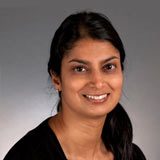
Dr. Kiran Maski
Kiran Maski, MD MPH is an Assistant Professor at Harvard Medical School and child neurologist and sleep medicine specialist at Boston Children’s Hospital. She is an advocate for pediatric narcolepsy in promoting awareness of this condition among health care providers and schools.
Kiran Maski, MD MPH is an Assistant Professor at Harvard Medical School and child neurologist and sleep medicine specialist at Boston Children’s Hospital. She is an advocate for pediatric narcolepsy in promoting awareness of this condition among health care providers and schools. Dr. Maski recently served as the Co-Chairperson of the American Academy of Sleep Medicine Task Force for the Treatment of Central Nervous System Hypersomnias (2019-2021) and is a member of the medical advisory boards for Wake Up Narcolepsy and the Hypersomnia Foundation. Her current clinical research is focused on neurophysiological biomarkers that improve diagnostic delays and predict treatment outcomes in CNS Disorders of Hypersomnolence. She has received grant support from the National Institutes of Health (K23), American Academy of Neurology, American Sleep Medicine Foundation, Wake Up Narcolepsy, BCH Research Council Fund and Jazz Pharmaceuticals, Inc.
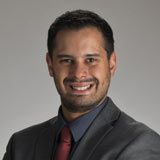
Dr. Diego Mazzotti
Dr. Mazzotti is an Assistant Professor in the Division of Medical Informatics and in the Division of Pulmonary Critical Care and Sleep Medicine, Department of Internal Medicine at the University of Kansas Medical Center.
Dr. Mazzotti is an Assistant Professor in the Division of Medical Informatics and in the Division of Pulmonary Critical Care and Sleep Medicine, Department of Internal Medicine at the University of Kansas Medical Center. He is also a member of the Sleep Research Network Task Force (Sleep Research Society) where he works towards the design of standardized workflows for the analysis of sleep data.
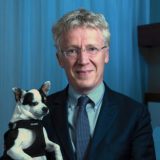
Dr. Emmanuel Mignot
Dr. Mignot discovered that human narcolepsy is caused by the autoimmune loss of ~20,000 hypothalamic neurons secreting the wake-promoting peptide hypocretin.
Dr. Mignot discovered that human narcolepsy is caused by the autoimmune loss of ~20,000 hypothalamic neurons secreting the wake-promoting peptide hypocretin. He identified HLA-DQB1*06:02 and T-Cell receptor genes as major susceptibility genes across ethnic groups, which act together to promote a highly selective T cell mediated autoimmune process triggered by influenza infection. He has received numerous awards and is a member of the National Academies of Sciences and Medicine. He works on many aspects of sleep research and on unravelling the etiologies of various autoimmune diseases affecting the brain. Applying lessons learned from narcolepsy immunogenetics, Dr. Mignot has found a protective signal in an immune gene called HLA-DR, specifically the presence of the HLA-DRB1*04 (DR4) subtype in Parkinson’s disease (PD). Dr. Mignot plans to study DR4 association in larger cohort of 30,000 PD cases, examine its associations with PD brain pathology such as Lewy body density and characterize Alpha-Synuclein peptides that bind DR4s and activate immune cells in PD cases. Understanding the mechanism of how DR4s mediates protection against PD could be used to slow down or stop PD progression.

Dr. Anne Marie Morse
Dr. Anne Marie Morse is the Director of Child Neurology and Pediatric Sleep Medicine at Geisinger, Janet Weis Children’s Hospital and an associate professor the Geisinger Commonwealth School of Medicine.
Dr. Anne Marie Morse is the Director of Child Neurology and Pediatric Sleep Medicine at Geisinger, Janet Weis Children’s Hospital and an associate professor the Geisinger Commonwealth School of Medicine. She is a board certified adult neurologist with special qualifications in child neurology and sleep medicine specialist. She is the Director of Child Neurology and Pediatric Sleep Medicine at Janet Weis Children’s Hospital – Geisinger Health System (Danville, Pennsylvania). She has significant clinical experience and interest in pediatric and adult patients with sleep wake disorders, particularly central disorders of hypersomnolence, such as narcolepsy. In addition, her research interests extend more broadly to include investigating the relationship of sleep with neurologic disease. Some of her current research involvement includes participation in studies evaluating novel therapies and management strategies for hypersomnia disorders, neurodevelopment and sleep, and neurocognitive outcomes related to sleep apnea. In addition, Dr Morse’s commitment to sleep health also extends into the community. She has developed a school-based sleep education and surveillance program called Wake Up and Learn, a program developed to provide education about sleep health and perform school-based sleep screening to improve recognition of pediatric sleep disorders in middle and high school students. After successful implementation in middle school and high school, it has now expanded to include learners in college, medical school, and medical residency programs as well. Dr. Morse envisions a world where sleep can be acknowledged as the vital sign of health, wellness, and performance that it is designed to be.
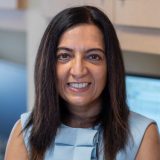
Dr. Indra Narang
Dr. Narang is the former Director of Sleep Medicine and a Paediatric Respirologist at the Hospital for Sick Children, Toronto. She is a Senior Associate Scientist in Translational Medicine at the Research Institute.
Dr. Narang is the former Director of Sleep Medicine and a Paediatric Respirologist at the Hospital for Sick Children, Toronto. She is a Senior Associate Scientist in Translational Medicine at the Research Institute. She is also the paediatric lead and an executive member of the Canadian Sleep and Circadian Rhythm. Dr Narang is the inaugural appointment as the Associate Chair in Faculty Development, Equity, Diversity and Inclusion in the Department of Paediatrics.
Dr Narang’s. clinical and research interests are related to sleep disorders in obese youth and in children with underlying medical complexity. Her research is evaluating effective and novel therapeutic interventions that will promote personalized approaches for the management of sleep disorders in youth. Specifically, her group is evaluating the use of heated high flow therapy for the management of OSA. Her research funding includes CIHR and the Ontario Thoracic Society.
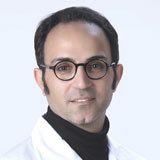
Dr. Mohammad Nami
Mohammad Nami MD, PhD is the Director of the Brain, Cognition and Behavior Unit at the Dana Brain Health Institute and BrainHub Academy UAE
Mohammad Nami MD, PhD
Mohammad Nami MD, PhD is the Director of the Brain, Cognition and Behavior Unit at the Dana Brain Health Institute and BrainHub Academy UAE, as well as former Head of the Department of Neuroscience and Vice Chancellor for Research and Technology Affairs, School of Advanced Medical Sciences and Technologies, Shiraz University of Medical Sciences, Shiraz, Iran. He has been a visiting professor at the Society for Brain Mapping and Therapeutics and Brain Mapping Foundation, Los Angeles CA (2020-2022).
Dr Nami is also an Associate Neuroscientist at Neuroscience Center, INDICASAT-AIP, Panama City, Republic of Panama. He also serves as the National Brain-Mapping Lab Advisory Board member for Neuroscience. He is a PGME graduate, Associate Member of the Harvard Medical School Alumni, and member of the Harvard Alumni Entrepreneurs.
His main areas of research and clinical practice are medical/cognitive neuroscience, neuroscience of sleep, neuro-cognitive fitness, neurological aspects of sleep disorders and related interventions. He believes that mental health and sleep health awareness need to copromoted as one does not come without the other. As such, his career has been dedicated to helping people awaken to their true nature and infinite brain/cognitive, and affective potentials to maintain better sleep and mental aptitude. This is his calling.

Dr. Thomas E. Scammell
Dr. Thomas Scammell received his Doctor of Medicine degree from the University of Massachusetts Medical School, where he trained in internal medicine.
Thomas E. Scammell, MD
Professor, Neurology
Harvard Medical School
Beth Israel Deaconess Medical Center
Boston Children’s Hospital
Boston, Massachusetts
Dr. Thomas Scammell received his Doctor of Medicine degree from the University of Massachusetts Medical School, where he trained in internal medicine. He also completed a residency in Neurology at the University of California, San Francisco, and a fellowship in Sleep Medicine at Beth Israel Deaconess Medical Center.
Dr. Scammell is a Professor in Neurology at Harvard Medical School, Beth Israel Deaconess Medical Center, and Boston Children’s Hospital. He serves as an ad hoc reviewer for New England Journal of Medicine, Annals of Neurology, Nature, Cell, and Neuron, and was a Deputy Editor of SLEEP. He was a member of the International Classification of Sleep Disorders Task Force, the Sleep Research Society Board of Directors, and the APSS Program Committee.
The author of over 150 journal articles and chapters, Dr. Scammell has lectured both nationally and internationally on narcolepsy and the neurobiology of sleep and wakefulness. His current research interests include identifying how loss of orexin signaling results in sleepiness and cataplexy, development of new medications for narcolepsy, interactions of sleep and pain, and sleep disorders in Prader-Willi Syndrome.
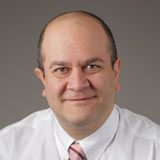
Dr. Murat Sincan
Murat Sincan, MD, FAMIA, is the director of health informatics for Flatiron Health and an Assistant Professor of Medicine at the Sanford School of Medicine, Department of Internal Medicine, University of South Dakota.
Murat Sincan, MD, FAMIA
Murat Sincan, MD, FAMIA, is the director of health informatics for Flatiron Health and an Assistant Professor of Medicine at the Sanford School of Medicine, Department of Internal Medicine, University of South Dakota. He received his medical degree from Hacettepe University, Ankara Turkey, and postdoctoral training at the National Human Genome Research Institute of the National Institutes of Health at Bethesda, Maryland. Dr. Sincan is a Fellow of the American Medical Informatics Association. Dr. Sincan’s research interests focus on both genetic and non-genetic factors that influence a patient’s health. His project involves deep phenotyping of patients through the use of natural language processing, which extracts clinical concepts from the Electronic Medical Record in combination with patient reported data. His career focuses on developing and implementing informatics methods to improve the management and analysis of genomic, and clinical data, clinical decision support, and translational research. He has a deep interest in genomics, biomedical informatics, research informatics and precision medicine.
Executive Team

Lindsay Jesteadt, Ph.D
Co-Founder and CEO
Lindsay began her career in education, focusing on Compliance, Special Education Policies and Procedures in the State of Florida—work that challenged the current provisions of State Education for disadvantaged and under-represented children.
Lindsay Jesteadt, Ph.D—Co-Founder and CEO, began her career in education, focusing on Compliance, Special Education Policies and Procedures in the State of Florida—work that challenged the current provisions of State Education for disadvantaged and under-represented children. This led Lindsay to occupy roles in educational leadership, across several state school districts while representing parents and advocating for individual children with complex health, intellectual and behavioral needs.
In 2014, following the abrupt onset of Type 1 Narcolepsy in her 4-year-old son Noah, Lindsay’s life took on a new trajectory—one that merged her professional expertise and personal passion to help Noah and children like him. After independently identifying and securing Noah’s diagnosis but unable to find local treatment, the Jesteadt family traveled to Stanford Center for Narcolepsy Research California, where eight years, later Noah remains a patient of Prof. Emmanuel Mignot.
At this time, Lindsay began working ambitiously towards improving lives of children with narcolepsy, a role that crystalized formally as Director of Development for Wake Up Narcolepsy, where she served 4 years re-structuring and re-building the organization. Creating and implementing multiple narcolepsy programs, educational events and support services for the sleep community tapped into Lindsay’s organizational gifts and vision for a better future for all those who suffer with disordered sleep. Her commitment to the pediatric population and understanding of the parent/care-giver role has since played a pivotal role advising industry, patient advocacy organizations and supporting parents navigating the early years of childhood sleep disorders. She is called upon for her extensive research knowledge, her capacity to engage and contribute on both large-scale public platforms, one-on-one supportive roles, and her global knowledge base of therapeutic options, clinical trials, and trends in sleep research.
Widely respected for her acute eye for detail and capacity to engage with multiple stake-holders, Lindsay’s executive prowess and collaborative nature has been pivotal to the pioneering success of Sleep Consortium which she co-founded in 2021 having identified the critical need to accelerate sleep research through a global patient-centric data base.
She is published (peer reviewed) in both education and Central Disorders of Hypersomnolence and is the recipient of academic prizes—most recently honored with the 2022 TREND Citizen Science award for her dedication to the patient community and contribution to accelerating research in Sleep.
She holds a PhD an Ed.S and two M.Eds from Florida Atlantic University, further qualifications in educational leadership and to date maintains teaching at post-graduate level. She is also the Program Coordinator for the World Sleep Society and when not pioneering data collection through the work of Sleep Consortium, you can find her and her family Joe, Ella and Noah boating to the Bahamas.
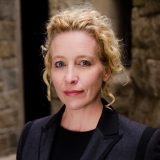
Claire Wylds-Wright
Co-Founder and CXO
Claire has been advocating for individuals and families affected by narcolepsy for over a decade since her youngest daughter Mathilda contracted Type 1 Narcolepsy in 2010 at the age of three.
Claire Wylds-Wright, Grad Phys, SRP, MCSP, MFA—Co-Founder and Chief Experience Officer (CXO), has been advocating for individuals and families affected by narcolepsy for over a decade since her youngest daughter Mathilda contracted Type 1 Narcolepsy in 2010 at the age of three.
Since late 2021, Wylds-Wright has served as the Chief Experience Officer of Sleep Consortium upon recognizing the need to revolutionize sleep research by leveraging Artificial Intelligence and Machine Learning on a patient-centric digital platform. It was her work with individuals and families across multiple rare and non-rare disease spaces experiencing narcolepsy symptoms while failing to secure a diagnosis and optimal treatment that resonated with her own journey—causing a radical re-thinking in current research methodology in Central Disorders of Hypersomnolence. Co-creating Sleep Consortium is a direct response to her desire to reduce diagnostic delays and accelerate life-changing therapies for people with sleep disorders across all ages and demographics. With first-hand experience of the detrimental impact of narcolepsy on children, parents, families and caregivers, her passion to de-burden patients is coupled with an acute sense of urgency, that life is too short not be lived fully and a belief that first-rate healthcare is a fundamental human right regardless of age, gender, geography, educational background, income, or identity status.
Born, raised and educated in England, Claire trained as a physical therapist at St Thomas’s Hospital, London, and practiced as a clinician in the British National Health Service and in private healthcare specializing in chronic pain management, community care, trauma, medico-legal representation and latterly senior management. In 2011 she moved her family from Bristol, England to the USA to secure expert care and treatment for Mathilda under Professor Emmanuel Mignot at Stanford Center for Narcolepsy research, California. Once Mathilda’s health stabilized, she began writing on narcolepsy and the impact of a pediatric diagnosis on the family unit–thereby, giving voice to children and their caregivers and exposing the under-recognized aspects of a pediatric sleep disorder diagnosis.
Her first book Waking Mathilda—A Memoir of Childhood Narcolepsy (published 2017, Palace Gate Press) won the International Reader’s Favorite 2017 Silver Medal and has also been optioned for a motion picture. Waking Mathilda is widely read and globally distributed as an educational tool throughout industry and has been featured in mainstream media, on national (US) radio and in the UK press.
Until 2021 she has held the position of Executive Director for Wake Up Narcolepsy bringing progressive redirection to educational and online support services (before and during Covid) and hosted the first narcolepsy podcast—Narcolepsy 360 with a global audience of over 80,000. It remains a body of work that demonstrates the complexities and nuances of narcolepsy and its significant inter-personal, professional, psychological and socio-economic impact.
Throughout her career, spanning advocacy, clinical work and executive experience, Wylds-Wright has interwoven her role as a primary caregiver, Key Opinion Leader, author, and sought-after-speaker to improve the lives of those that struggle with sleep/wake dysfunction—a fundamental purpose of her life. Her success is built on an innate ability to identify the inherent needs of both individuals and communities and take strategic decisions and risks to bring about connection by creating collaborative partnerships. This is central to her belief that meaningful and trusted relationships have the capacity to accelerate change for good. In pioneering the first ever interoperable sleep disorder data collection portal in partnership with RARE-X, she anticipates this new era of digital sleep research will empower patients, researchers, clinicians and industry and lead to key clinical discoveries that cross multiple disease spaces.
This year, Wylds-Wright has been awarded an MFA (prose) from the University of St. Andrews and the Citizen Scientist award by TREND—a US based social listening and acquisition research organization. She lives and works in Los Angeles and on a farm in rural Fife (Scotland) with her favorite people—Oliver, Liberty, Elliot, and Mathilda.
Patient Advocacy Collaborators









Industry Collaborators




Partners

